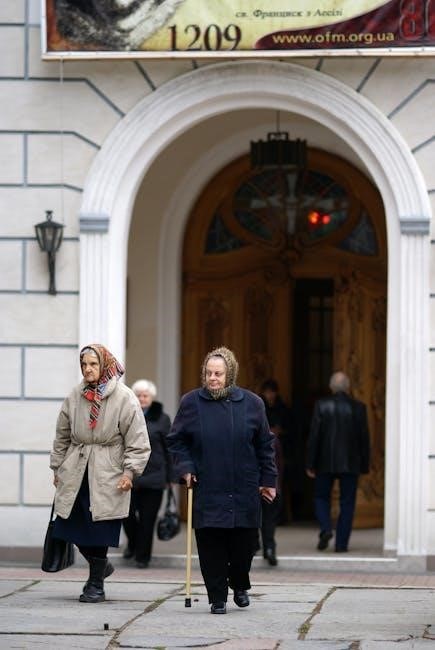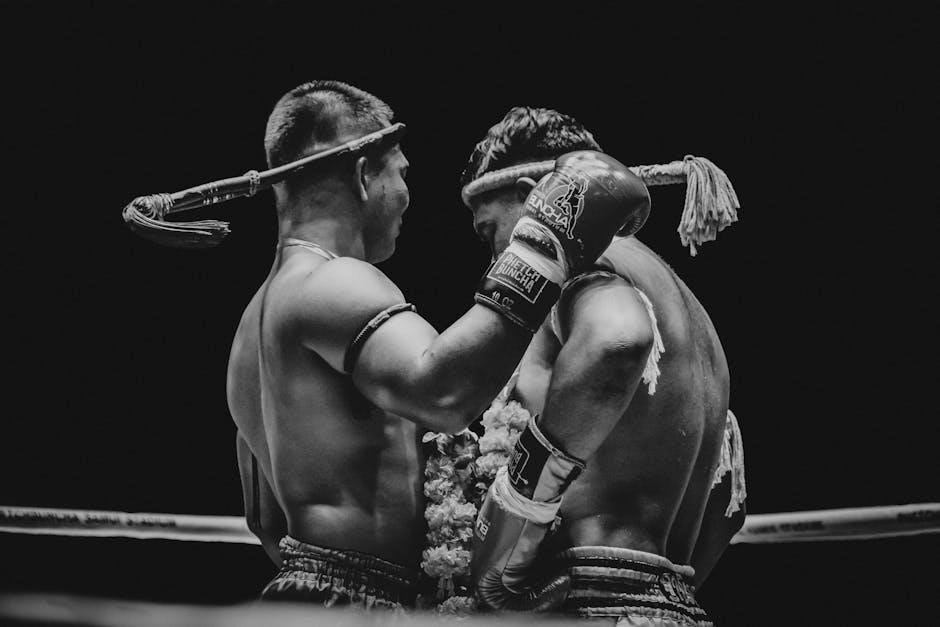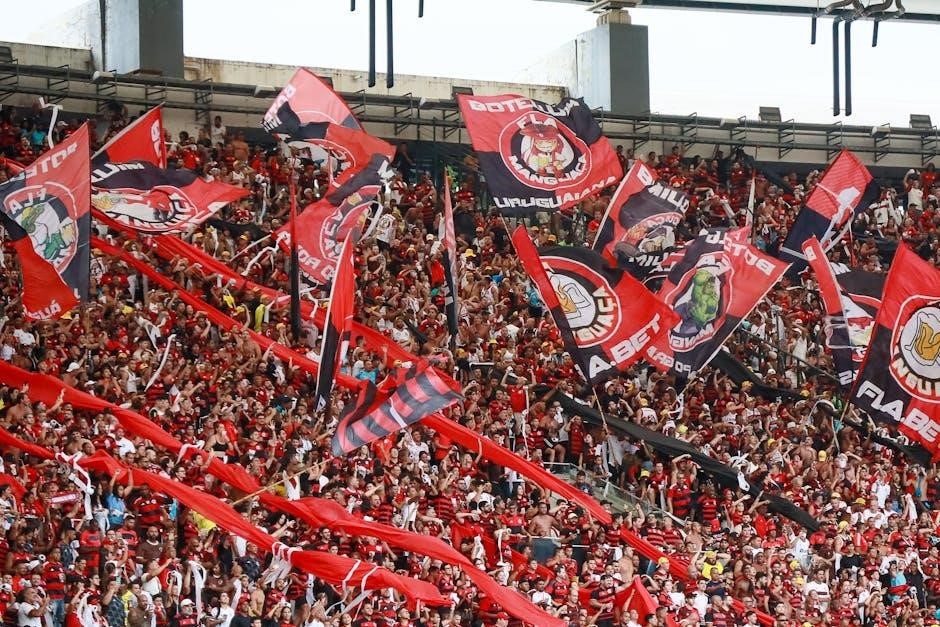The UBS Culture Match Assessment is a situational judgment test evaluating candidates’ alignment with UBS’s values and culture through real-life workplace scenarios.
What is the UBS Culture Match Assessment?
The UBS Culture Match Assessment is a situational judgment test designed to evaluate how well candidates align with UBS’s values and workplace culture. It presents 15-18 realistic work scenarios, each requiring candidates to choose the most appropriate actions. The assessment focuses on decision-making, ethical dilemmas, teamwork, and adaptability. Provided by Korn Ferry, it aims to identify candidates whose behaviors and values resonate with UBS’s corporate environment. The test is untimed, allowing candidates to reflect on their responses, ensuring alignment with UBS’s principles and cultural expectations.

Purpose of the UBS Culture Match Assessment
The UBS Culture Match Assessment aims to evaluate candidates’ alignment with UBS’s core values and cultural expectations. By presenting real-life workplace scenarios, it assesses decision-making, ethical reasoning, and teamwork skills. The test helps identify individuals whose behaviors and values resonate with UBS’s principles, ensuring a strong cultural fit. This alignment is crucial for fostering collaboration, integrity, and innovation within the organization. The assessment also benefits candidates by providing insights into UBS’s work environment, helping them determine if they align with the company’s mission and culture. Ultimately, it supports both UBS and candidates in making informed decisions for a successful partnership.
Structure of the UBS Culture Match Assessment
The UBS Culture Match Assessment includes 18 multiple-choice questions, presented as workplace scenarios, designed to evaluate decision-making and alignment with UBS’s values and culture.
Number of Questions in the Assessment
The UBS Culture Match Assessment consists of 18 questions, presented as realistic workplace scenarios. These questions are designed to evaluate how well candidates align with UBS’s values and cultural expectations. Each question offers multiple-choice options, allowing candidates to demonstrate their decision-making skills and problem-solving abilities. The assessment is structured to reflect real-life situations that employees might encounter at UBS, ensuring that candidates’ responses align with the company’s behavioral expectations. This format helps UBS identify individuals who are not only skilled but also culturally aligned with the organization’s mission and values.
Type of Questions in the Assessment
The UBS Culture Match Assessment features situational judgment questions, presenting candidates with realistic workplace scenarios. These multiple-choice questions focus on decision-making, ethical dilemmas, and teamwork. Candidates are asked to choose the most and least effective responses to each scenario, reflecting UBS’s values and cultural expectations. The questions are designed to mimic real-life situations at UBS, such as managing projects, resolving conflicts, or collaborating with colleagues. This format allows UBS to evaluate how well a candidate’s strengths and decision-making align with the company’s culture and behavioral expectations, ensuring a strong fit for the role and organization.
Time Duration and Format of the Assessment
The UBS Culture Match Assessment is a computer-based test with 15 multiple-choice questions, typically completed within 20 minutes. While not strictly timed, candidates are encouraged to manage their time effectively. The assessment is provided by Korn Ferry, offering a user-friendly format. It presents realistic workplace scenarios, allowing candidates to demonstrate their decision-making and problem-solving skills. The format is straightforward, ensuring candidates can focus on showcasing their alignment with UBS’s cultural values and behaviors. Breaks are permitted, but most candidates complete the assessment in one sitting due to its concise nature and clear structure;
Provider of the UBS Culture Match Assessment
The UBS Culture Match Assessment is provided by Korn Ferry, a global organizational consulting firm. Korn Ferry designs and administers the test to evaluate candidates’ alignment with UBS’s cultural values and work ethic. The assessment is computer-based, featuring 15 multiple-choice questions that present realistic workplace scenarios. Korn Ferry ensures the test is user-friendly and concise, typically taking about 20 minutes to complete. Their expertise helps UBS identify candidates whose strengths and decision-making skills align with the organization’s expectations, making the assessment a key tool in the hiring process.

Key Competencies Assessed in the UBS Culture Match
The assessment evaluates decision-making, ethical problem-solving, teamwork, adaptability, and analytical thinking, ensuring candidates align with UBS’s cultural expectations and values effectively.
Decision-Making Skills

Decision-making skills are a core competency assessed in the UBS Culture Match Assessment. Candidates are presented with realistic workplace scenarios that require sound judgment and ethical reasoning. The test evaluates how well individuals can weigh options, prioritize actions, and make decisions that align with UBS’s values. For instance, scenarios may involve managing project deadlines or resolving conflicts, where the ability to think critically and choose effective responses is crucial. Demonstrating a logical approach and a commitment to UBS’s principles is essential for success in this section.
Ethical Dilemmas and Problem-Solving

Ethical dilemmas and problem-solving are central to the UBS Culture Match Assessment, which presents candidates with realistic workplace scenarios. These questions require individuals to demonstrate their ability to navigate moral challenges and make decisions that align with UBS’s values. For example, scenarios might involve resolving conflicts or addressing ethical conflicts in a team setting. Candidates are expected to think critically and choose responses that reflect integrity, accountability, and a commitment to UBS’s principles. This section evaluates how well individuals can balance competing priorities while maintaining ethical standards and contributing to a positive work environment.
Teamwork and Collaboration
The UBS Culture Match Assessment emphasizes teamwork and collaboration, presenting scenarios that reflect real-life workplace interactions. Candidates are evaluated on their ability to work effectively with others, communicate clearly, and build consensus. Questions often involve managing team dynamics, resolving conflicts, or contributing to group decisions. This section assesses how well individuals can balance personal contributions with the needs of the team, fostering a collaborative environment. UBS values teamwork highly, and the assessment seeks to identify those who can thrive in its culture of shared responsibility and mutual respect, ensuring alignment with the organization’s collaborative ethos.
Adaptability to UBS’s Work Environment
Adaptability is a critical competency assessed in the UBS Culture Match Assessment, reflecting the dynamic nature of UBS’s work environment; Candidates are presented with scenarios that test their ability to navigate change, ambiguity, and diverse perspectives. The assessment evaluates how well individuals can adjust their approach to align with UBS’s evolving priorities and collaborate effectively in varied contexts. Demonstrating flexibility, resilience, and openness to new ideas is essential, as UBS values employees who can thrive in a fast-paced, global financial environment. This competency ensures candidates can seamlessly integrate into UBS’s culture and contribute to its forward-thinking objectives.
Problem-Solving and Analytical Thinking
The UBS Culture Match Assessment evaluates problem-solving and analytical thinking through scenarios requiring logical reasoning and sound decision-making. Candidates are presented with complex workplace situations that demand critical analysis, such as resolving conflicts or optimizing processes. The test assesses the ability to identify key issues, weigh options, and choose effective solutions aligned with UBS’s values. Strong analytical skills are crucial in UBS’s fast-paced environment, where employees must make informed decisions quickly. This competency ensures candidates can contribute to innovative solutions and maintain high standards of performance, aligning with UBS’s commitment to excellence and strategic thinking in global finance.

Example Questions from the UBS Culture Match Assessment
The assessment includes 15-18 real-life workplace scenarios, each with multiple-choice responses. Questions focus on decision-making, ethical dilemmas, and teamwork, reflecting UBS’s work environment and values.
Sample Question 1: Teamwork Scenario
You are working on a high-profile project with a team of five. The deadline is approaching, and one team member is struggling to complete their tasks. What do you do?
A) Take over their tasks to ensure timely completion.
B) Discuss the issue with the team and redistribute tasks collectively.
C) Report the struggling team member to your manager.
This question assesses your approach to teamwork, collaboration, and problem-solving in a challenging situation, aligning with UBS’s values of integrity, responsibility, and collaboration.
Sample Question 2: Ethical Dilemma
A client requests a transaction that could breach compliance regulations. Your manager advises proceeding, citing client satisfaction as a priority; What do you do?
A) Follow the manager’s advice to maintain client trust.
B) Refuse to proceed, citing regulatory concerns.
C) Escalate the issue to compliance for guidance.
This question evaluates your ethical judgment and alignment with UBS’s commitment to integrity and regulatory adherence, ensuring decisions reflect both client and organizational values.
Sample Question 3: Decision-Making Under Pressure
Your team is nearing a critical deadline for a project. One team member is underperforming, causing delays. Your manager suggests reallocating their tasks to meet the deadline. What do you do?
A) Reallocate tasks immediately to ensure timely completion.
B) Speak privately with the underperforming team member to identify issues.
C) Suggest working overtime as a team to compensate for the delay.
This question assesses your ability to balance productivity with team support, reflecting UBS’s values of collaboration and accountability in high-pressure situations.
Importance of Cultural Fit at UBS
Cultural fit ensures alignment with UBS’s values, fostering teamwork, ethical decision-making, and adaptability, which are crucial for employee success and organizational effectiveness.
Why UBS Emphasizes Cultural Fit
UBS prioritizes cultural fit to ensure employees’ values and behaviors align with its corporate identity. This fosters a cohesive work environment, enhancing collaboration, innovation, and ethical decision-making. A strong cultural alignment enables employees to navigate challenges effectively, embody UBS’s principles, and contribute to its mission. By assessing cultural fit, UBS builds a workforce that not only excels individually but also collectively drives the organization’s success. This emphasis on shared values and behaviors is integral to maintaining UBS’s reputation as a leader in the financial industry, ensuring long-term employee satisfaction and organizational growth.
Impact of Cultural Fit on Job Performance
Cultural fit significantly influences job performance by aligning employees’ values and behaviors with organizational goals. When individuals share UBS’s values, they are more likely to make decisions that support the company’s mission and objectives. This alignment fosters collaboration, innovation, and ethical decision-making, which are critical in a dynamic financial environment. Employees who fit well culturally tend to be more engaged, motivated, and satisfied, leading to higher productivity and reduced turnover. Additionally, cultural fit promotes a cohesive work environment, enabling teams to navigate challenges effectively and maintain UBS’s reputation for integrity and excellence in the financial industry.

How to Prepare for the UBS Culture Match Assessment
- Familiarize yourself with UBS’s core values and culture to align your responses.
- Practice situational judgment tests to refine your decision-making skills.
- Review past experiences to identify behaviors that match UBS’s expectations.

Stay calm and think clearly during the assessment for optimal performance.

Understanding UBS’s Core Values
UBS’s core values include integrity, client focus, and excellence. These principles guide decision-making and behavior, ensuring alignment with the company’s mission and culture. Candidates should demonstrate these values in their responses during the assessment. Understanding these values helps candidates align their actions with UBS’s expectations, showcasing their cultural fit. By integrating these values into their answers, candidates can effectively highlight their suitability for the role and the organization.
Practicing Situational Judgment Tests
Practicing situational judgment tests (SJTs) is crucial for excelling in the UBS Culture Match Assessment. These tests present real-life workplace scenarios, asking candidates to choose the most effective actions. Regular practice helps improve decision-making skills, ensuring responses align with UBS’s values. Candidates can access sample questions online, such as managing conflicts or prioritizing tasks. By reviewing worked-out answers, they can refine their approach. Additionally, mock assessments provide insights into time management and question structure. Consistent practice builds confidence and familiarity with the test format, enabling candidates to showcase their problem-solving abilities and cultural fit effectively during the actual assessment.
Reviewing Past Experiences and Behaviors
Reflecting on past experiences and behaviors is essential for success in the UBS Culture Match Assessment. By examining how you’ve handled similar situations previously, you can align your responses with UBS’s values and expectations. Reviewing your actions in teamwork, decision-making, and problem-solving scenarios helps identify patterns in your behavior. This self-awareness allows you to present consistent and authentic answers during the assessment. Additionally, understanding how your past experiences demonstrate UBS’s core values, such as integrity and collaboration, strengthens your candidacy. This reflective process ensures your responses are genuine and culturally aligned, enhancing your fit with UBS’s work environment.

Tips for Acing the UBS Culture Match Assessment
- Stay calm and focused during the assessment to ensure clear thinking and accurate responses.
- Align your answers with UBS’s core values, such as integrity, respect, and teamwork.
- Use the STAR method to structure your responses to behavioral questions effectively.
- Practice situational judgment tests to familiarize yourself with the assessment format.
- Review UBS’s culture to understand the expected behaviors and decision-making styles.
Stay Calm and Think Clearly
Remaining composed during the UBS Culture Match Assessment is crucial for optimal performance. Take deep breaths to manage nerves and approach each question thoughtfully. Avoid rushing through scenarios—read them carefully and consider the best response. A clear mind allows you to align your answers with UBS’s values and expectations. Stress can cloud judgment, so focus on maintaining a calm demeanor. Practicing relaxation techniques beforehand can help you stay centered. By thinking clearly, you’ll make decisions that reflect your authentic self and how you’d handle real-life situations at UBS. This mindset will enhance your ability to showcase your cultural fit effectively.
Align Your Answers with UBS’s Values
When responding to the UBS Culture Match Assessment, ensure your answers align with UBS’s core values, such as integrity, respect, and responsibility. These values guide decision-making and behavior at UBS. Review the company’s principles beforehand to understand what is expected. For each scenario, consider how your response reflects these values. For example, prioritize ethical decisions and teamwork when applicable. By mirroring UBS’s cultural expectations, you demonstrate your suitability for the role. Authenticity is key, but framing your answers within UBS’s value framework will highlight your compatibility with the organization’s culture and work environment.
Use the STAR Method for Behavioral Questions
The STAR (Situation, Task, Action, Result) method is an effective way to structure responses to behavioral questions in the UBS Culture Match Assessment. Begin by describing the Situation and the context, then outline the Task or challenge you faced. Next, detail the Actions you took to address it, focusing on your contributions. Finally, conclude with the Result, emphasizing the outcome and what you learned. This method ensures clarity and highlights your problem-solving skills, decision-making, and alignment with UBS’s values. By using STAR, you provide concise, impactful answers that demonstrate your fit for UBS’s culture and expectations.
Frequently Asked Questions About the UBS Culture Match
Is the UBS Culture Match Assessment timed? No, it is not strictly timed. How are the results used? To evaluate cultural fit and decision-making skills. Can I retake it? No, candidates typically take it once during the process.
Is the UBS Culture Match Assessment Timed?
The UBS Culture Match Assessment is not strictly timed, allowing candidates to complete it at their own pace. However, it typically takes around 20 minutes to finish, as it includes 18 questions. Candidates can take breaks if needed, but the assessment is designed to be concise and efficient. This format helps ensure that candidates can demonstrate their genuine responses to workplace scenarios without undue time pressure, aligning with UBS’s emphasis on natural decision-making and cultural fit.
How Are the Results of the Assessment Used?
The results of the UBS Culture Match Assessment are used to evaluate how well a candidate’s values, behaviors, and decision-making align with UBS’s corporate culture. This helps UBS identify individuals who are likely to thrive in their work environment and contribute effectively to the organization. The assessment outcomes are typically used to filter candidates during the hiring process, ensuring that those who progress are a strong cultural fit. The results are also provided by Korn Ferry, the assessment provider, and are analyzed to support hiring decisions that align with UBS’s core values and goals.
Can I Retake the UBS Culture Match Assessment?
Generally, candidates are not allowed to retake the UBS Culture Match Assessment once they have completed it. The assessment is designed to evaluate your alignment with UBS’s values and culture at the time of application. Retaking the test could compromise the fairness and integrity of the hiring process. If you perform poorly, you may not progress in the selection process, but there is no formal option to retake the assessment. Candidates are encouraged to prepare thoroughly beforehand to ensure they present their best alignment with UBS’s cultural expectations.
Benefits of the UBS Culture Match Assessment
The assessment provides candidates insights into UBS’s culture, helping them gauge alignment with company values. It aids UBS in identifying candidates who embody its cultural expectations, fostering a cohesive workplace and enhancing long-term employee fit.
For Candidates: Insights into UBS’s Culture
The UBS Culture Match Assessment offers candidates a unique opportunity to gain insights into UBS’s corporate culture and values. By presenting real-life workplace scenarios, the assessment helps candidates understand how UBS operates and what behaviors are expected. This clarity allows candidates to evaluate whether their personal values and work style align with the organization. The assessment also provides a chance for self-reflection, enabling candidates to identify areas where they may thrive or need adjustment within UBS’s environment. Ultimately, this insight helps candidates make informed decisions about their fit with the company and prepares them for potential roles;
For UBS: Identifying the Best Candidates
The UBS Culture Match Assessment is a vital tool for identifying candidates whose values and behaviors align with the organization’s culture. By evaluating how candidates respond to realistic workplace scenarios, UBS can assess their decision-making skills, ethical judgment, and teamwork abilities. This helps ensure that selected candidates not only excel in their roles but also contribute positively to the company’s collaborative and innovative environment. The assessment streamlines the hiring process, enabling UBS to build a cohesive and high-performing team that upholds its core values. It’s a strategic approach to fostering long-term success and organizational harmony.
Enhanced Employee-Organization Fit
The UBS Culture Match Assessment plays a crucial role in enhancing employee-organization fit by ensuring candidates’ values and behaviors align with UBS’s culture. This alignment fosters a positive work environment, leading to higher job satisfaction and productivity. By evaluating responses to real-life scenarios, the assessment identifies individuals who are likely to thrive within UBS’s collaborative and innovative culture. A strong cultural fit reduces turnover and enhances teamwork, benefiting both the employee and the organization. This mutual alignment creates a harmonious workplace where individuals can contribute effectively, driving UBS’s success while fulfilling their personal and professional goals.
The UBS Culture Match Assessment is a vital tool for evaluating alignment with the company’s values and culture. It helps identify candidates whose behaviors and values align with UBS’s collaborative and innovative work environment. By preparing for this assessment, candidates can demonstrate their fit and increase their success chances.
Final Thoughts on the UBS Culture Match Assessment
The UBS Culture Match Assessment is a crucial evaluation tool designed to align candidates’ values and behaviors with UBS’s culture. It presents realistic workplace scenarios, focusing on decision-making, ethical dilemmas, and teamwork. The assessment is typically not timed, allowing candidates to reflect on their responses. Proper preparation, such as understanding UBS’s core values and practicing situational judgment tests, significantly enhances performance. By showcasing alignment with UBS’s principles, candidates can demonstrate their potential to thrive within the organization and contribute effectively to its collaborative environment.
Next Steps After Completing the Assessment
After completing the UBS Culture Match Assessment, candidates receive immediate feedback on their alignment with UBS’s values and culture. Successful candidates are invited to proceed to the next stages of the recruitment process, such as cognitive assessments or interviews. It is essential to review the feedback to understand strengths and areas for improvement. Candidates should also prepare for subsequent evaluations by aligning their responses with UBS’s core values and demonstrating Problem-Solving skills. This step is crucial for advancing in the selection process and securing a role at UBS.
